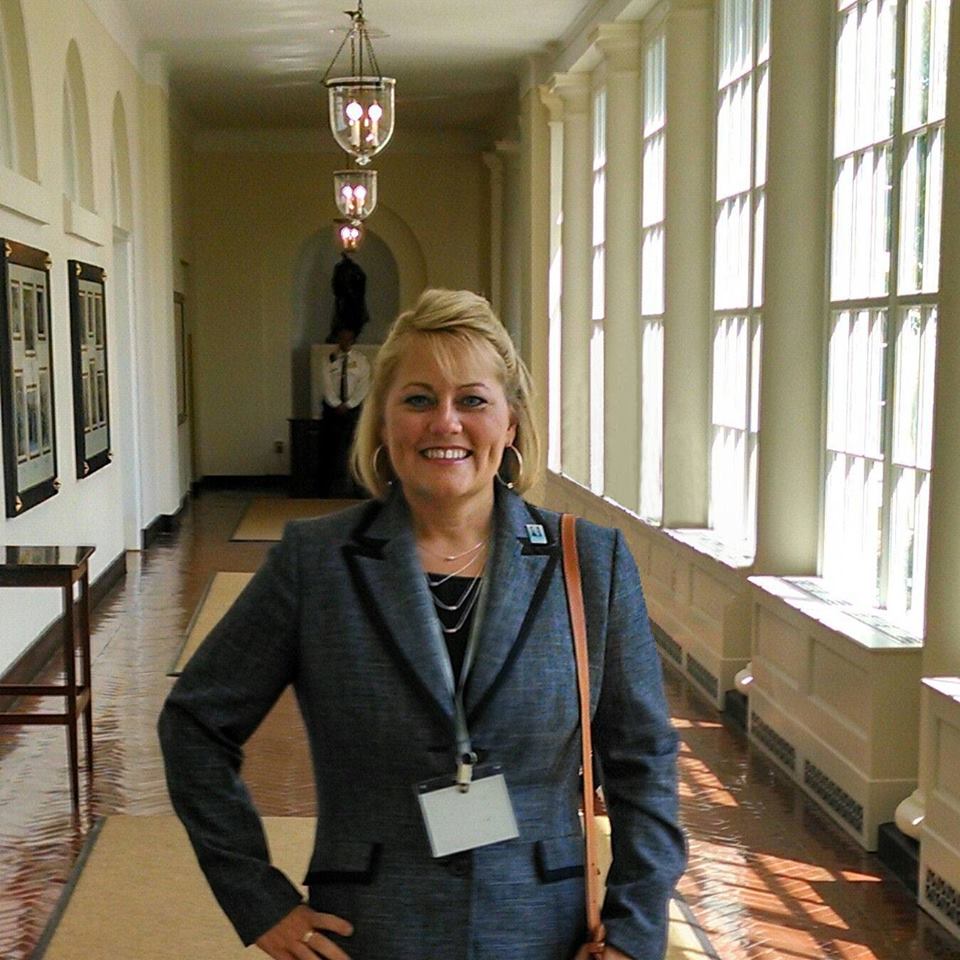Ashbrook Master’s Graduate Named Ohio’s Outstanding Secondary Social Studies Teacher
December 24, 2020

In October, Kimberly Huffman, a graduate of Ashbrook’s Master of Arts in American History and Government degree program, was named Ohio’s Outstanding Secondary Social Studies Teacher. The Ohio Council of Social Studies (OCSS), which promotes social studies education, recognized Huffman for exceptional practice in teaching, leadership in her school community, supporting the success of youth, and promoting youth’s civic participation.
Huffman teaches government at Wayne County Schools Career Center (WCSCC), a school where students learn career-technical skills while completing high school academic requirements. The career center emphasizes hands-on learning, with a range of apprenticeship opportunities, from bricklaying to nursing and hospitality work. Although Huffman teaches an academic rather than a skills-based subject, she focuses on real-life application.
Jean Roberts, former Career Services Coordinator at WCSCC, who nominated Huffman for the award, noted the “high energy” level in Huffman’s classroom. Students grasp the relevance of government under Huffman’s guidance, engaging with enthusiasm in research reports, current event discussions, and conversations with Ohio political officials or their staffers who visit the classroom in person or via Skype. Huffman “instills both knowledge and passion for the democratic process in her students,” Roberts said.
Huffman teaches a state-mandated government course to juniors and seniors. Since completing her Master’s, she has also taught a “dual enrollment” government course that gives students three college credits through Stark State College. This head start on an associates degree would not have opened at WCSCC had Huffman not discovered Ashbrook’s nearby master’s program with its summer schedule. Like many teachers in Ashbrook’s program, Huffman did not want to take time off, abandoning her students, while earning her degree.
Huffman particularly appreciated the government component of Ashbrook’s program. “I got a B.A. in education with a concentration in social studies,” which required low-level courses in history, sociology, economics, geography, and political science. This did not supply the content knowledge she needed to teach government. “I was told that if I concentrated in political science I’d never get hired. But you don’t find your passion by learning a little bit about a lot of different things. Now, thanks to Ashbrook, I know a lot about a smaller area—government and politics.”
Huffman encourages students to become “engaged citizens who understand and protect their rights. I tell students that to protect our freedoms, we have to know the Constitution”—lest we discover the liberties it protects only “after they’re taken away.” Huffman advises the student leadership council at WCSCC, helping students “strategize how to correct” school issues. “You have to understand the established process of government and work within those parameters.” She must reason against the impatience of adolescence and a “distaste for politics” noticeable across all age groups.

In 2013, Huffman was the high school teacher chosen as Congressional Fellow by the James Madison Foundation, giving her a rare month-long internship in a Washington Congressional office. Huffman worked for Jim Renacci, Congressman for Ohio’s 16th district, gaining great respect for the long hours and careful thought Renacci puts in as he balances competing interests within his district. She can now explain to her students the difficulty of making legislative decisions. Last summer Huffman furthered her knowledge of a particular interest—the Supreme Court—when she attended a seminar on the Supreme Court at Stanford University.
Huffman says Ashbrook’s program built her confidence to tackle these challenges. The professors “stretch you, exposing you to primary documents and their importance. Before, I was a textbook teacher—always just two weeks ahead of the kids” in her grasp of the subject. “Now I have a repertoire of primary documents to use in class and a secure knowledge of the subject.” Using primary sources as a framework for class debate, Huffman can “let the students arrive at their own conclusions.” Like other Ashbrook-educated teachers, Huffman has seen that when students read America’s founding documents, they embrace on their own the principles of our democratic system.

